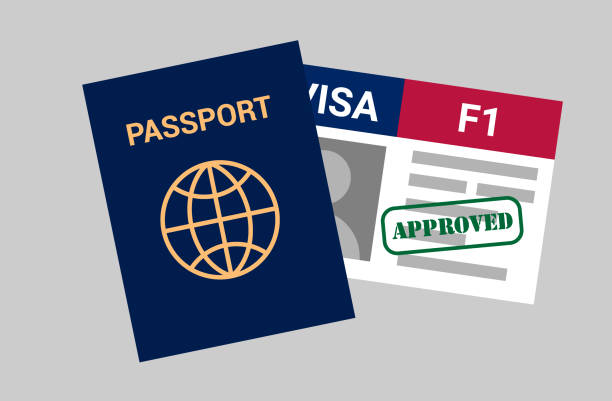Is studying abroad for rich students
Studying abroad often sparks a slew of images—picturesque campuses, cultural experiences, and unfortunately, sky-high bills. This has led many to believe that studying abroad is exclusively for rich students. But the big question is, Is studying abroad for rich students? Is this stereotype still relevant, or is the modern world turning the tables on this misconception?
If you’ve been wondering whether studying abroad is within reach for you—or if you’re just curious about global education and its financial dynamics—this guide will break down the myths, lay out the facts, and help you determine if studying abroad is feasible for more than just the privileged few.
Is studying abroad for rich students? A Brief History of Studying Abroad

How It Started as an Elite Pursuit
Years ago, studying abroad was seen as a rare privilege, reserved mainly for affluent families. Access to higher education internationally was limited, both in terms of opportunities and affordability. Wealthy students would travel to renowned institutions in Europe or North America as a sign of prestige and status.
Shifts in Accessibility Over the Years
Fast forward to today, and the landscape looks significantly different. Globalization and advancements in technology have played pivotal roles in reshaping the accessibility of studying abroad. Many governments and institutions now offer financial aid, scholarships, and grants to support students from diverse backgrounds. This evolution reflects a growing understanding of education as a universal right rather than a luxury.
What Does Studying Abroad Really Cost?
Tuition Fees: Private vs. Public Institutions
Tuition varies wildly depending on where you go. Private universities tend to be more expensive, but excellent and affordable options exist—especially at public institutions abroad. For instance, countries such as Germany and Finland offer significantly lower tuition fees for international students, sometimes even free programs for certain degrees.
Living Costs: Urban vs. Rural Areas
Studying in global cities like London or New York typically entails higher living expenses due to rent and overall costs. However, choosing rural or smaller urban counterparts can substantially reduce costs, offering the same quality of education with a smaller price tag.
Hidden Costs: Travel, Visas, and Insurance
These often-overlooked expenses can add up quickly. Flights, visa applications, health insurance, and transportation are essential budget considerations. Planning ahead and researching countries with student-friendly policies can help mitigate some of these costs.
Scholarships and Financial Aid
One of the biggest myths about studying abroad is that it’s impossible for middle-class or financially constrained families. The reality? Tons of resources can help ease the burden.
Government-Funded Scholarships
Many governments offer scholarships to encourage international students. Options like the Fulbright Program (U.S.) and Chevening Scholarship (U.K.) are popular examples of fully-funded opportunities.
University-Specific Scholarships
Numerous universities provide financial aid packages or scholarships tailor-made for international students. From need-based aid to merit scholarships, there’s often no shortage of available support.
Private and International Organizations’ Scholarships
Beyond governments or universities, private organizations, multinational companies, and non-profits often fund programs for deserving students. Researching these options could uncover life-changing opportunities.
Affordable Study Abroad Destinations

Countries with Free or Low-Cost Education
Countries like Germany, Norway, and Austria are known for offering free or low-cost education to international students. These regions focus on making education accessible without sacrificing quality.
Affordable Living Options Around the World
Look for destinations where living expenses are relatively low. Countries in Eastern Europe, parts of Asia, and South America provide affordable housing and food options while still offering excellent academic programs.
Part-Time Work Opportunities for Students
Understanding Work Permits and Regulations
Many countries allow international students to work part-time while studying. For example, Australia and Canada have clear regulations permitting students to work up to 20 hours a week during the semester—an excellent way to earn extra income.
Popular Student Jobs Abroad
From tutoring and on-campus jobs to freelance work or temporary gigs in cafes, students often find opportunities that don’t interfere with their studies.
Online Learning as a Hybrid Solution
Blending On-Campus and Online Education
Some universities now offer hybrid programs, combining the prestige of studying abroad with the convenience (and cost savings) of virtual education. This format provides global exposure without requiring you to be physically present full-time.
Cost Comparison: Hybrid vs. Traditional Programs
Online components largely reduce tuition costs and allow flexibility, making such programs a bridge between traditional study abroad models and fully remote learning.
Cultural and Professional Returns on Investment
Networking Opportunities and Global Exposure
Studying abroad isn’t just about earning a degree. It’s also a chance to meet and collaborate with people from across the globe. Building these connections can open doors to careers, partnerships, and lifelong friendships.
Career Advantages Post-Graduation
Global education boosts your résumé. Graduates with international exposure often stand out in competitive job markets and are perceived as adaptable, culturally aware, and self-reliant.
Challenges and Misconceptions
Is Study Abroad Only for the Privileged?
It’s time to set the record straight. Studying abroad may be more accessible than you imagine. Scholarships, budget strategies, and opportunities to work reduce the burden, making it achievable for determined students from diverse backgrounds.
Practical Hurdles Beyond Financial Barriers
Language barriers, cultural adjustments, and academic environment differences can pose challenges. However, these are all manageable with preparation, research, and a willingness to adapt.
Budget Travel Hacks by Students
- Be flexible with travel dates: Reducing airfare expenses is possible by flying off-season.
- Leverage student discounts: Rail passes, museum tickets, and even software often come discounted for students.
- Cook meals at home: Minimize dining-out expenses by learning to cook local recipes.
Expert Opinions and Data Insights

Economists on the Financial Viability of Studying Abroad
Reports suggest that the average ROI of a degree earned abroad can outweigh initial expenses—especially when job opportunities align with demand in global markets.
Educators on Its Value for Skill-Building
Education professionals emphasize that studying abroad builds soft skills like adaptability, problem-solving, and cross-cultural communication, which are hard to replicate otherwise.
FAQs
Can middle-class families afford study abroad?
Absolutely. Scholarships, financial aid, and budget-savvy decisions make it possible for middle-class families to manage study abroad expenses.
What are the cheapest countries to study in?
Germany, Norway, and India are some of the most affordable options. They offer low or free tuition for international students.
Are there full scholarships available for study abroad?
Yes. Programs like the Fulbright, Chevening, and DAAD scholarships are fully-funded, covering tuition, living expenses, and more.
How can students save money while studying abroad?
Look for affordable housing, work part-time, cook meals at home, and take advantage of student discounts.
Is online learning a substitute for studying abroad?
While online learning comes with cost benefits, full immersion in a foreign environment provides unique cultural and academic experiences that online education can’t fully replicate.
What are the long-term benefits of studying abroad?
Global exposure, career readiness, and personal growth are just a few advantages of pursuing education abroad.
Conclusion: Accessing Global Education on Your Terms

Not sure where to start? Explore scholarship programs, work-study opportunities, or hybrid learning models. Whether you’re looking to build a global network, propel your career, or simply immerse yourself in a different culture, the tools and strategies are available to help you make your dream a reality.
Studying abroad isn’t the unattainable dream it once was. With proper planning, financial support, and a willingness to explore less conventional paths, global education is within reach for many more students than commonly believed.







